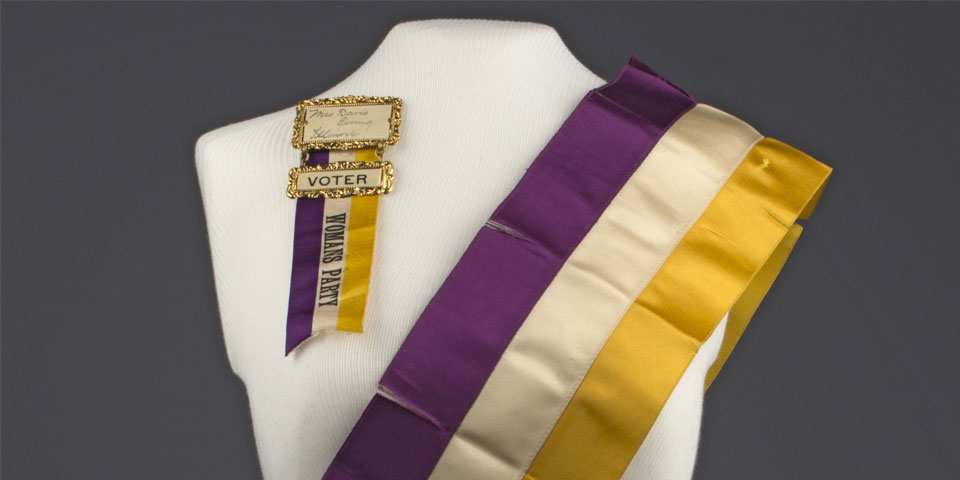“The women of this country have waited sixty years before resorting to their present methods,” local philanthropist Hazle Buck Ewing wrote to McLean County Democratic Party Chairman E. E. Donnelly in 1916, “hoping that this country would furnish the one case in history in wh[ich] a body of disenfranchised citizens might be able to secure its right of franchise without a united fight for it… They have been at last forced to stand together for each other and more & more of them will be willing to do this until full suffrage for the whole country is finally granted.”
At the time of Hazle’s missive, the fight for women’s suffrage was indeed in full swing. The following year, Hazle’s niece Lucy Ewing would spend a month in prison for picketing the White House even as Alice Paul, leader of the National Woman’s Party, languished in solitary confinement in an attempt to break her will. Across the country, imprisoned suffragists went on hunger strikes to draw attention to their cause and were violently force-fed in retaliation. Victory came on August 18, 1920, when 36 states ratified the Susan B. Anthony amendment, enshrining women’s right to vote in the Constitution of the United States.
“Has not the time come, Mr. D., when the one conspicuous example of so-called democratic gov[ernment] in all the world needs the combined interest and wisdom of all instead of only half its intelligent, adult citizenship?”—Hazle Buck Ewing to McLean County Democratic Party Chairman E. E. Donnelly, September 16, 1916
Hazle’s activist writings, as well as incoming letters from dozens of other suffragists and materials from the National Woman’s Party and Congressional Union for Woman Suffrage, are now freely available online for research and study, thanks to a monthslong digitization campaign by Milner Library and the Ewing Cultural Center. These documents demonstrate the intimate connection between women’s social and political networking, the grassroots nature of suffrage movement, and the impact of World War I on the cause and the country as a whole. Together, they offer a privileged glimpse into the world of a First Wave feminist philanthropist and provide a very human face for a nationwide movement nearing its hundredth anniversary.
Access the Hazle Buck Ewing women’s suffrage collection online through Milner Library’s collections page. For additional information on the digital collection or to arrange a classroom visit, please contact Digitization Coordinator Karmine Beecroft or Ewing Cultural Center Director Toni Tucker. Physical collection items are property of Ewing Cultural Center, which is run by the Illinois State University Foundation; in the spirit of open access, all digital collection items have been made available for high-resolution download (consult individual item records to learn more about their copyright status).

